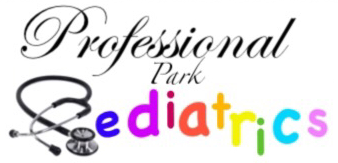Keeping Children Safe
Media
Access to internet, TV and games can both help and hurt kids. Refer to the guide linked here for information on how to protect your kids online and how to limit their media access.
Drowning
Drownings are a leading cause of death in young children. If you have a swimming pool, it should be enclosed on all 4 sides by a pool fence (at least 4 feet high) with a lock or latch that young children cannot open. Self-closing, self-latching gates are preferable. The fence should be separate from the house; your house should not count as the fourth wall.
Seat belt and child safety seats
Infants should ride rear-facing until they reach the maximum weight recommended by the seat manufacturer. By that point a child can be up to two or more years of age. Once children outgrow their car seat they should ride in a belt-positioning booster seat. Children should ride in a booster seat until the seat belts fits properly, which is typically when they are 4 feet 9 inches tall, and aged 8 to 12. Children should not ride in the front seat until they are 13 years old. Refer to the AAP guide on child car safety here.
Bike Safety
Bikes and skateboards and scooters are wonderful modes of exercise, great for developing balance and coordination, but sometimes deadly. They should not be ridden without a helmet and other protective equipment, no matter how short the ride. Brain damage will be just as severe and unforgiving on a “short” ride as a long ride.
All-Terrain Vehicles (“4-wheelers”) and Motor Bikes
These vehicles have the potential to cause grave and mortal injury, especially when ridden by children. We recommend that children use non-motorized, foot-powered bicycles and scooters instead (with helmets!).
Trampolines
Trampolines are fun, but tempting to use inappropriately. Only one youngster should be on a trampoline at a time and adults should be on the scene to supervise and keep a child from flying off. If an adult cannot be present, you should not consider purchasing a trampoline. Even with adult supervision there are inherent hazards which may prove unavoidable.
Poisonings
Poisonings continue to occur despite safety childproof caps (20% of children can manage to get them off and 20% of adults cannot) and an increased awareness of household hazards. All toxic substances and medicines should be stored up where a child cannot climb to get them or in a locked space. If your child has ingested or if you think your child has ingested a poisonous substance immediately call us or the poison control center (see below). If possible have the bottle or container at hand. Syrup of ipecac is no longer recommended.
The nationwide phone number for Poison Control is 1-888-222-1222.
Domestic Violence and Child Abuse
If you are a victim of domestic violence, you can contact Refuge House of Tallahassee for advice and assistance. Their phone number is (850) 681-2111.
If you suspect that your child or a child you know is a victim of physical, emotional, or sexual abuse, the number for the Florida Abuse Hotline is (800) 962-2873.
